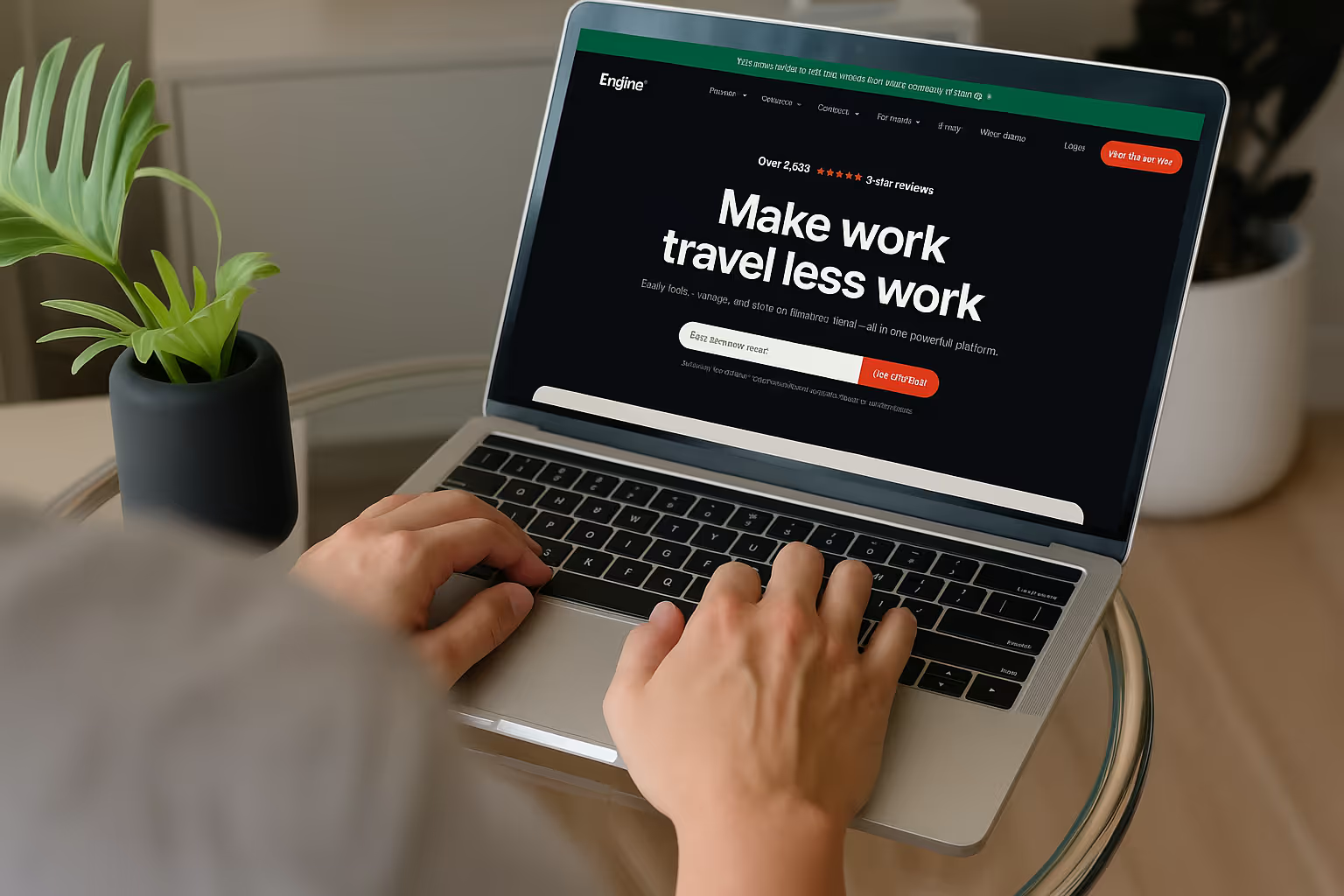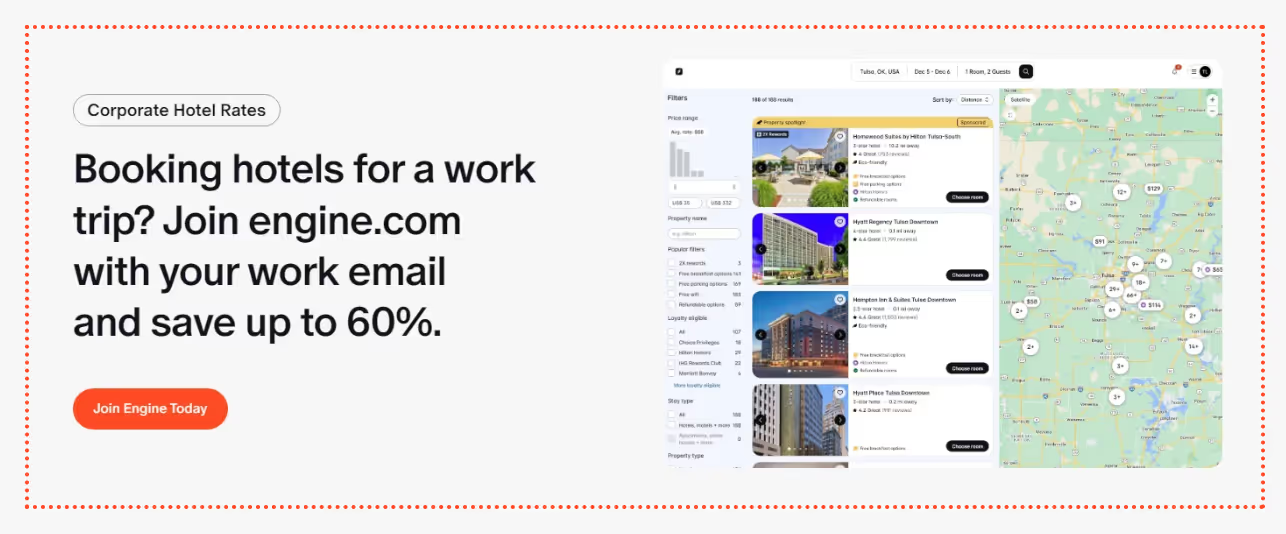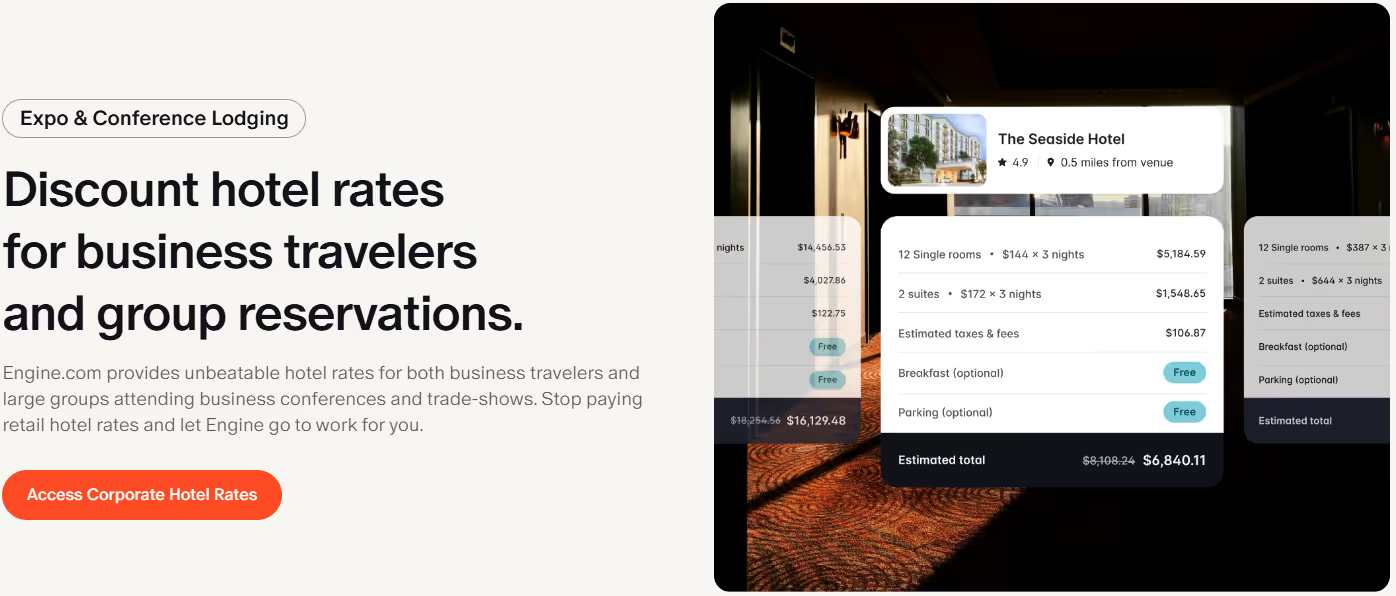What is business travel? From tax advantages to business travel providers, let’s break it down.


Understanding Business Travel: Purpose, Challenges, and Best Practices
Business travel plays a critical role in helping companies build stronger relationships, close high-stakes deals, and explore new opportunities. With the right systems and strategies in place, it can drive growth while staying cost-effective and streamlined.
Business travel remains an important part of today's work culture, enabling teams and professionals to build relationships, explore new markets, and conduct essential work that simply can't be replicated over a zoom call. Despite the rise of virtual tools, the demand for in-person interactions continues to make business travel indispensable.
What Defines "Business Travel"?
Business travel involves any trip taken for professional reasons outside of one’s typical work area. This includes client visits, training sessions, trade shows, and internal meetings across offices or regions. It excludes commutes, vacations, or purely leisure-based trips. Now, partaking in a bit of lesiure while on a business trip, that's a different story and we'll dig into that later in the article.
Over 400 million long-distance business trips are made annually in the U.S. alone, reflecting just how big business travel is within many U.S. companies. Now, imagine how many business trips are made globally. Unfortunetely, there are no solid numbers on the total amount of global business trips,. However, if the U.S. does 400m per year, you have to assume the global total is nearing the 1 billion mark.
Why Do Companies Rely on Business Travel?
Here are some of the most common reasons organizations send employees on the road:
- Deal Negotiation and Client Relations: In-person meetings often lead to faster decision-making and more successful outcomes. Face-to-face communication helps establish trust and clarify expectations. There's something about sitting across from someone at a table and having a conversation that you simply can't get on a zoom call.
- Market Research & Expansion: Visiting a potential new market in-person offers insights that can’t be gained through remote research. Understanding local consumer behavior and regulatory landscapes is key for successful expansion. There is also something to be said for experiencing a place in-person, the vibe and energy can only be experienced if you are physically there. This, of course, could be more or less important depending on your industry. This is big for a restaurant or bar looking to expand into an area, but may not be as important for a store selling plumbing equipment.
- Team Building and Internal Collaboration: Company retreats, office visits, and interdepartmental meetings help unify teams, foster stronger company culture, and improve internal communication. Nothing makes your employees feel more like a part of the team than taking them on an all-expense paid trip out of town.
- Event Participation: Conferences, trade shows, and training workshops offer opportunities for professional development, industry insight, and networking.
- Site and Supplier Evaluations: On-location visits help assess the quality and integrity of suppliers or business operations, especially important in industries involving physical goods or facilities.
- Employee Incentives: Team-building trips or recognition events motivate employees and reinforce company values.
- Bleisure Opportunities: Some professionals extend their trips for personal time, blending business obligations with relaxation.

Top 10 Business Travel Providers
Choosing the right business travel partner can make a significant difference in cost savings, booking efficiency, and traveler satisfaction. Below are ten of the leading business travel companies today, each known for serving specific types of travelers or organizations.
1. American Express Global Business Travel
Offers a robust platform with extensive global reach, personalized service, and a full suite of travel management tools. Ideal for large multinational corporations that need global booking support and a high-touch experience.
2. Engine.com - this is our favorite pick :)
Offers a modern business travel platform focused on workforce lodging, group bookings, and negotiated hotel rates with no membership fees. Ideal for operations teams, construction crews, and corporate travelers seeking fast quotes, direct billing, and savings at over 750,000 of our hotel partners.
3. BCD Travel
Known for its strong analytics, duty of care tools, and custom travel policy enforcement. A top choice for mid-to-large enterprises seeking strong compliance controls and risk management capabilities.
4. CTM (Corporate Travel Management)
Blends personalized service with modern technology to support complex corporate travel programs. Best suited for organizations needing a flexible, hands-on approach and customizable travel solutions.
5. Egencia
A digitally-driven platform that integrates well with existing enterprise systems and emphasizes ease of use. Designed for tech-savvy companies that want streamlined booking, reporting, and mobile functionality. This is an AMEX-owned company.
6. TravelPerk
Provides a flexible, self-service platform that simplifies bookings, changes, and cancellations, with strong cost transparency. A smart option for small-to-mid-sized businesses looking for simplicity and control.
7. CWT
Has decades of experience supporting enterprise clients with customized travel solutions and global support. Ideal for companies with high travel volumes and complex logistics needs.
8. Direct Travel
Offers high-touch customer service with an emphasis on customized travel programs and boutique-style support. A fit for mid-sized organizations that want a more personalized experience.
9. SAP Concur Travel
Offers a highly integrated travel and expense platform with powerful reporting and policy enforcement tools. Perfect for companies that want to unify their travel booking and expense management under one system.
10. ATPI
Specializes in travel management for energy, marine, sports, and project-based industries requiring logistical expertise. Ideal for organizations operating in niche sectors with complex travel demands.
Key Types of Business Travel
Business travel can take many forms depending on the purpose:
- Conference and Event Travel: For networking, learning, and exposure to new trends.
- Training and Development: Employees gain knowledge and skills to better perform in their roles.
- Client and Sales Visits: Strengthening business relationships and closing deals.
- Internal Office Visits: Connecting with coworkers across branches or regions.
- Site Inspections: Evaluating operational facilities, potential locations, or vendor compliance.
- Long-Term Assignments: Temporary relocation for projects or organizational transitions.
- Frequent Short-Term Travel: Quick trips for meetings or reviews.
- Combined Business and Leisure (Bleisure): Travel that blends professional and personal activities.

Common Challenges Managing Business Travel
While business travel brings many benefits, it’s not without its complications. Organizations often face the following obstacles:
- High Volume of Requests: Coordinating bookings and approvals across departments can create bottlenecks.
- Approval Tracking: Without a structured system, requests can get lost or delayed.
- Budget Oversight: Booking across various channels leads to inconsistent costs and difficulty enforcing spending policies.
- Policy Flexibility: Too many rules may reduce employee satisfaction, while too much flexibility can drive up costs.
- Error Management: Manual processes for receipts and documentation can result in reporting mistakes and compliance issues.
Tips for Streamlining Corporate Travel
To minimize friction and improve compliance, companies should focus on simplifying the travel process:
- Limit Bureaucracy: Avoid excessive or unclear rules that frustrate employees.
- Reduce Touchpoints: Fewer approval layers mean faster response times.
- Automate Processes: Use technology to simplify bookings, approvals, and reimbursements.
- Provide Clarity: Clear instructions help employees follow procedures correctly.
- Track and Report: Maintaining good records not only simplifies tax time but also reveals spending trends that can guide future policy adjustments.

What is a Business Travel Solution?
A business travel solution refers to a platform or system designed to manage company travel activities. These tools typically offer:
- Online booking options
- Budget tracking and reporting
- Policy enforcement
- Expense documentation and approvals
- Integration with company workflows
These platforms can replace manual tracking, enabling a more efficient and transparent experience for both employees and finance teams.
Tax Benefits of Business Travel
According to current tax regulations, business travel expenses can be deducted if the travel takes place away from the employee’s usual place of work and requires rest (such as overnight stays). Deductible expenses often include:
- Transportation (airfare, train, rental car, mileage)
- Lodging and meals
- Laundry, tips, and incidental costs
- Communication expenses
- Shipping of work-related materials
- Attendance at conventions or seminars related to the business
However, travel rewards or points used to book the trip cannot be deducted. Accurate documentation is essential, companies must reimburse employees to qualify for deductions. Read more about taxes and per-diem situations here.
Pros and Cons of Business Travel
Benefits:
- Strengthens professional relationships
- Supports employee development
- Enhances negotiation outcomes
- Enables real-time collaboration
- Offers networking opportunities
- Boosts company visibility at events
Drawbacks:
- Can lead to employee burnout or time away from family
- Introduces potential for budget overruns
- Requires significant coordination and resources

How Much Can Businesses Save on Travel?
One of the most important considerations in managing business travel is cost savings. Whether handled internally or outsourced to a travel platform, businesses can realize significant savings by adopting smarter booking strategies, negotiating better rates, and streamlining expense tracking.
Typical Savings Using a Business Travel Platform

Most corporate travel platforms, including those specializing in workforce lodging, group stays, and negotiated rates claim to save companies an average of 10% and 25% compared to public retail rates. Depending on the area and other specifics of the trip, even deeper discounts can be secured. These savings are achieved through:
- Pre-negotiated hotel rates
- Bulk purchasing power
- Waived fees or preferred terms
- Consolidated billing and expense tracking
- Better cancellation flexibility
Companies that book travel frequently, such as construction crews or distributed teams, often see higher savings, especially when platforms can secure rates at scale and minimize last-minute booking surcharges.
In-House Booking vs. Managed Travel
While some companies choose to handle bookings internally, this often comes at the expense of consistency and visibility. In-house travel coordination may involve employees booking through consumer sites, submitting expense reports manually, and negotiating on a case-by-case basis. Over time, this approach leads to:
- Higher average nightly rates
- Increased booking errors or policy violations
- Less control over budgets and traveler behavior
Organizations that shift to managed travel solutions or business travel platforms typically report savings in several key areas:
Managed Travel Typical Savings & Improvements
- Hotel Rates 10–22% lower than public sites
- Flight Bookings 5–15% average savings
- Cancellation Flexibility Up to 100% refunded on select rates
- Admin Time 40–60% reduction in manual work
- Policy Compliance 20–30% improvement
Group Booking Discounts
For companies booking 10+ rooms at a time, such as for training sessions, offsites, or field deployments, group rates often yield discounts of 15% to 30% compared to booking rooms individually. Services that specialize in room blocks can often negotiate:
- Free breakfast
- Parking or Wi-Fi credits
- Flexible cancellation windows
- Complimentary meeting space
These perks not only lower direct costs but also enhance the travel experience for employees and contractors.
Total Potential Impact
For businesses with moderate to high travel volume, shifting from unmanaged to managed travel can unlock five to six figures in annual savings, depending on scale. But even smaller companies stand to benefit from centralized booking, reduced friction, and tighter policy adherence.
Business Travel Will Continue Growing Globally
Business travel continues to serve as a powerful catalyst for growth, collaboration, and competitive advantages in the business world. As workforces become more distributed and global opportunities expand, the ability to connect in person remains a vital element of doing good business.
Organizations that take the time to structure efficient travel policies, balancing flexibility, control, and employee experience, can turn business trips into strategic advantages.









.avif)






.avif)




















